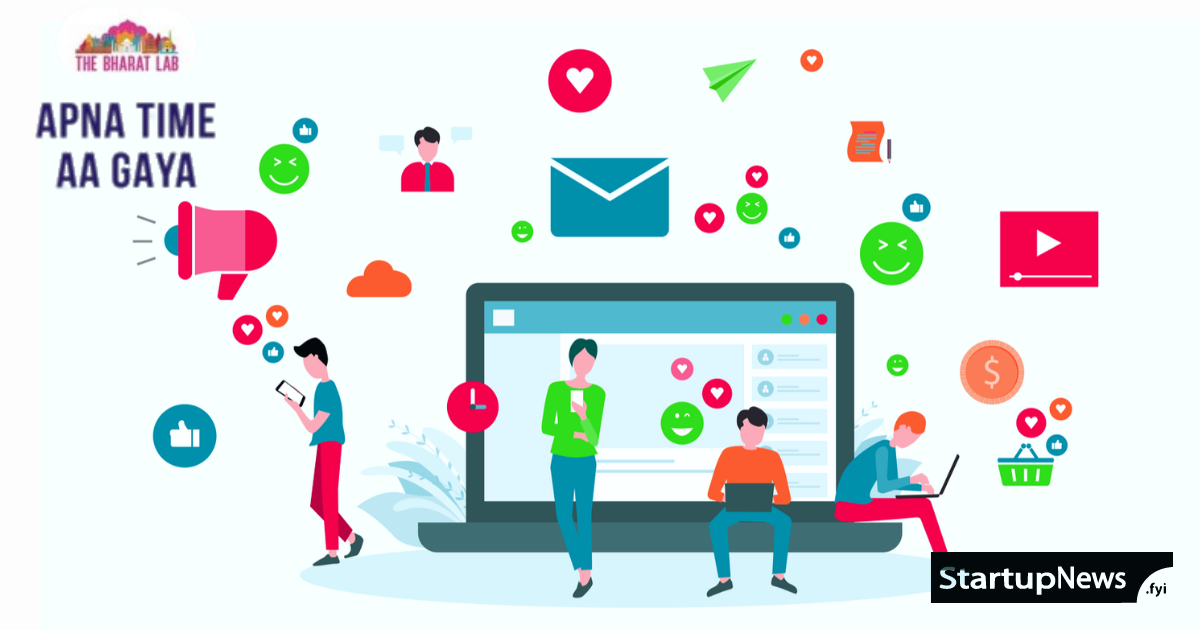Introduction to Bharat Lab Report on Youth Time Management
The Bharat Lab, a collaborative initiative between Rediffusion and the University of Lucknow, has unveiled a comprehensive report titled ‘Apna Time Aa Gaya.’ This study delves into the time management patterns of Indian youth across Tier 2 and 3 markets and rural villages. The report explores how young individuals in these regions allocate their time between different activities and media consumption.
Bharat Lab Insights on How Youth Spend Their Time
The study focuses on the activities that occupy the leisure time of Indian youth. Surprisingly, only 18% of respondents spend more than four hours engaging with friends and extended family during both weekdays and weekends. The report indicates that radio consumption for entertainment or news is minimal, with 87% of the sample population not using this medium. Television is favored by 24% for leisure, whereas the majority opt for online platforms like social media and other digital channels.
Media Preferences and Trends
The report highlights that a substantial 56% of the sample population turns to social media for entertainment, with YouTube and WhatsApp being the preferred platforms for nearly 70% of respondents. Notably, Facebook usage is limited, with 70% of Indian youth rarely or never using the platform. In rural areas, YouTube maintains its prominence, with 50% of village youth regularly consuming content for entertainment.
How Youth Fill Their Time
For individuals aged 16-25, the report reveals that 43% dedicate 4-8 hours to undergraduate or post-graduate studies. In terms of household chores, 76% allocate up to two hours for these responsibilities. In terms of physical activities, 15% of women and 35% of men opt for sports during their leisure time. When seeking news, educational content, or current affairs, YouTube emerges as the preferred choice, with only 16% relying on television for news.
Influencing Factors on Youth Time Management
Several factors influence how Indian youth allocate their time. Access to the internet is a critical determinant, with issues related to connectivity impacting online engagement. Additionally, the report suggests that individual preferences, rather than peer or family influence, play a significant role in time allocation. Cultural norms have a limited impact on youth decisions, as 60% feel unaffected by such norms. Gender differences in leisure activities and media consumption are relatively minimal, reflecting changing preferences in modern Bharat.
Prof. Alok Kumar Rai, Vice Chancellor of the University of Lucknow, underscored the report’s findings’ significance. He stressed their potential to mold corporate strategies.
Dr. Sandeep Goyal, Chairman of Rediffusion, pointed out the prevalence of platforms such as YouTube and WhatsApp. He also recognized the decrease in active sports engagement.
Prof. Sangeeta Sahu, Head of the Department of Business Administration at the University of Lucknow, praised the report. She noted its ability to capture the changing preferences and prospects of Indian youth. It offers a forward-looking view of modern-day Bharat.



![[CITYPNG.COM]White Google Play PlayStore Logo – 1500×1500](https://startupnews.fyi/wp-content/uploads/2025/08/CITYPNG.COMWhite-Google-Play-PlayStore-Logo-1500x1500-1-630x630.png)